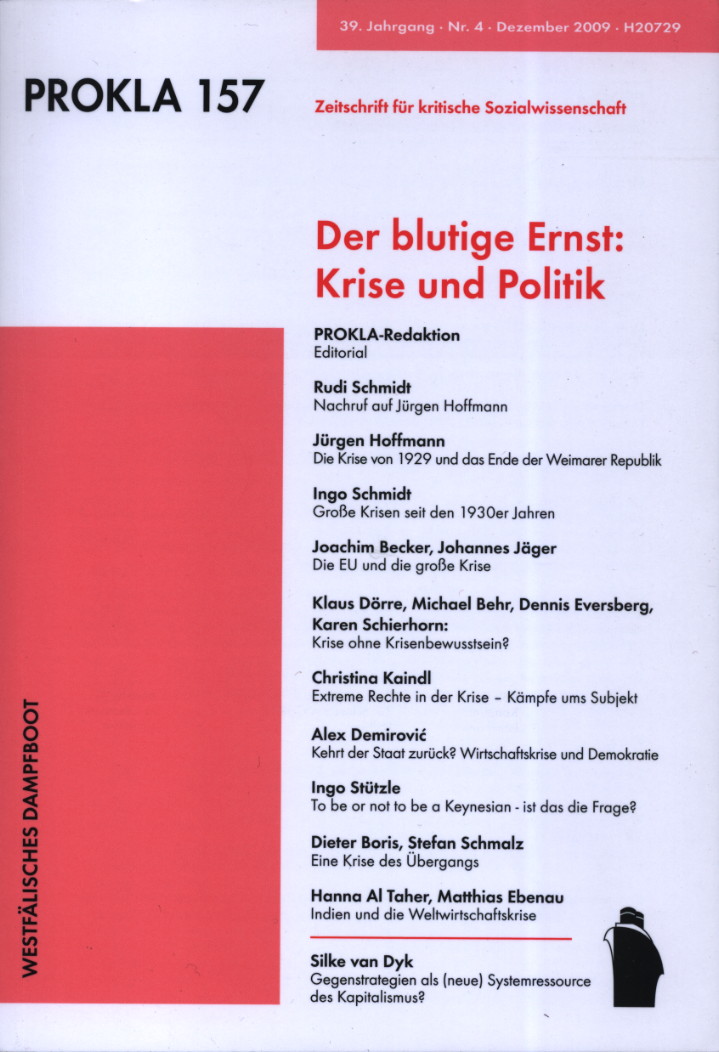Phoenix und Asche
Indien und die Weltwirtschaftskrise
DOI:
https://doi.org/10.32387/prokla.v39i157.416Keywords:
Indien, Krise, Weltwirtschaft, GlobalisierungAbstract
Against the backdrop of the Global Economic Crisis India's neoliberal elites initially argued, that its economy was safely decoupled from that of western countries, giving way to the fashionable 'decoupling theory': The evolving debate centered on whether or not, and later on how, India would be affected by the global crisis, but failed to recognize that any analysis attempting to grasp the current development fully, must not only connect the crisis to the economic development preceding it but also consider effects beyond the economy's internationalized sectors. We argue that while the economic crisis does affect India's internationalized economic segments adversely, particularly via the channels of foreign trade, international capital flows and availability of credit, the majority of the Indian population suffers from social crises, rooted in the country's economic strategy and expressed through agricultural distress combined with precarious employment conditions, which have persisted for much longer than the current global crisis. The majority of the population which suffered from 'Incredible India's' 'predatory growth' will have to carry the burden of its economic recovery and continued pursuit of the status of a major economic power.






